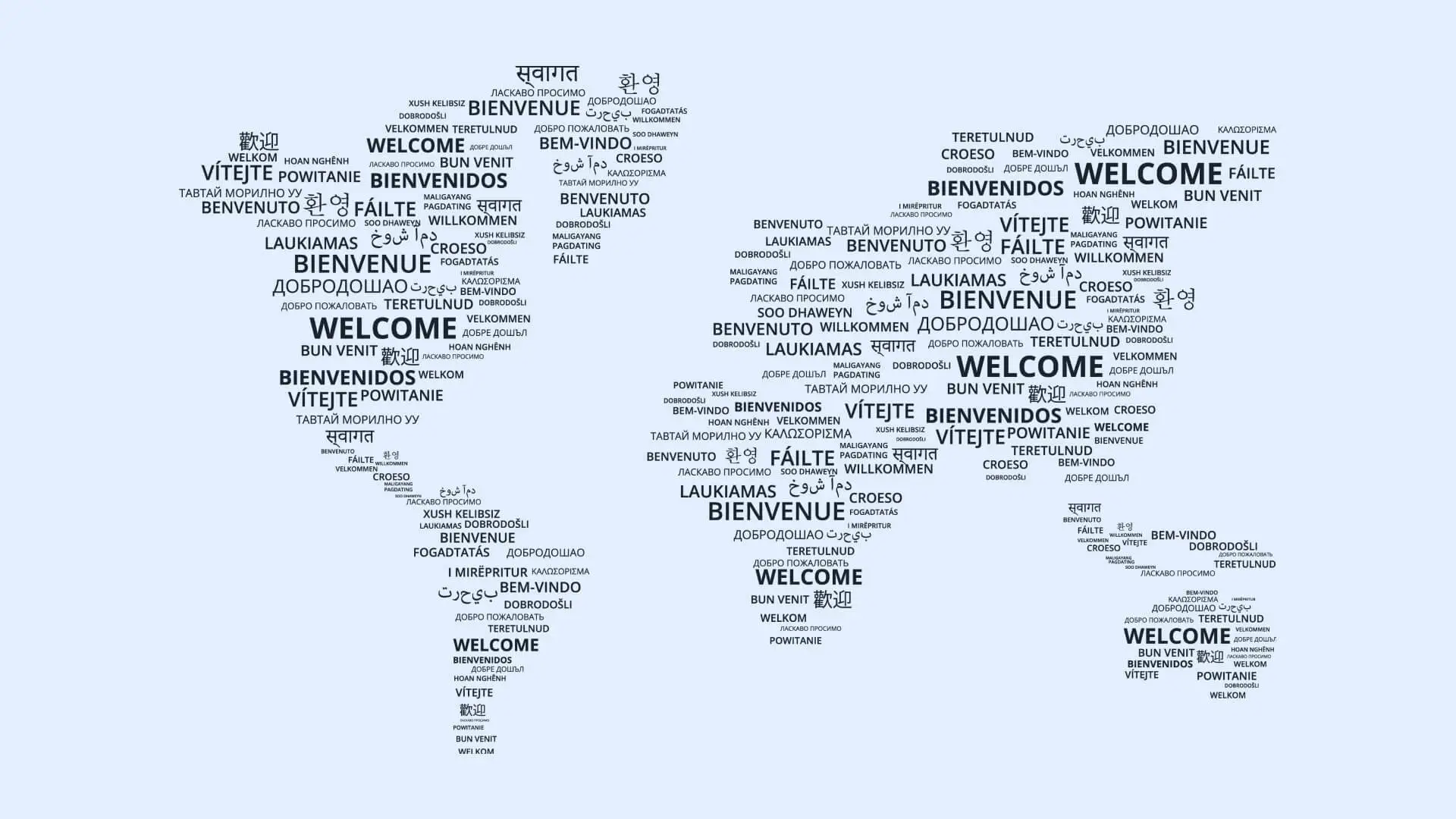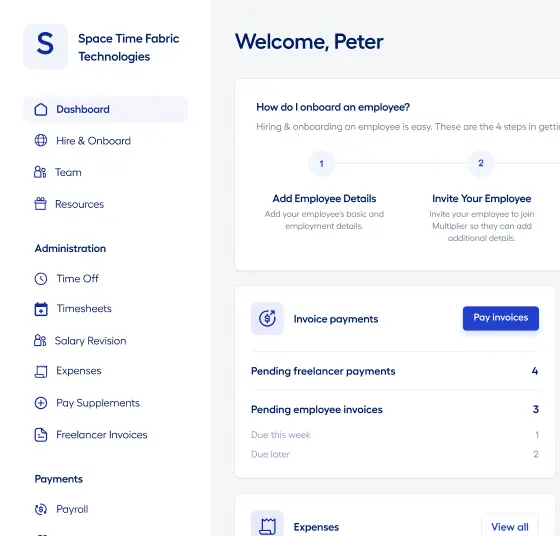Language bridges the gap between customers and suppliers in the international markets. From networking to partnerships to logistics, everything becomes simpler if an entrepreneur has in-depth knowledge of the top global business languages.
There are over 7000 languages worldwide, and international businesses can’t learn all of them. However, learning the top 10 international business languages can help entrepreneurs and their teams to scale quickly.
Here is a comprehensive guide for new founders to learn which global business languages they should prioritize learning for successful international trade operations.
10 Global Business Languages to Learn in International Markets
Building global business language skills becomes imperative if you want to maximize your growth in the international context. Multi-linguistic is an efficient skill in the global marketplace.
Wondering which languages you should learn first to kickstart your international business journey? Here is a detailed list:
1. English
English is the language of globalization. There are 400 million native English speakers worldwide. This clearly establishes the influence of this language in the global business marketplace.
This foreign business language is the official language in countries like the United States, United Kingdom, Australia, and South Africa, among others. As of 2020, English is the most common language for internet users, with a global market share of 25.9%.
Therefore, entrepreneurs planning to build a global reputation should make it a point to learn this language inside out.
2. Chinese
One of the most popular global business languages, giving English tough competition, is – Chinese or mandarin. There are approximately 1.15 billion native Chinese speakers globally, making it a vital language in the world of international business. In fact, the ever-thriving Chinese economy and an increasing number of Asian internet users can soon replace English to make Chinese the world’s #1 foreign business language.
China’s significant shift in the field of technology has led this nation to hold a top rank in the field of international business operations. According to PwC, China’s GDP will surpass the United States’ GDP by 2050. Hence, entrepreneurs and business teams should invest in learning this language for future growth opportunities.
3. German
Germany is one of the strongest European economies with a strong grip over science and technology. This country provides some remarkable opportunities for international entrepreneurs to have proficiency in the German language. With 130 million global German speakers worldwide, it can easily be part of the list of top global business languages.
Apart from Germany, other European countries like The Netherlands, Belgium, Austria, Switzerland, etc. also have a significant percentage of German-speaking populations. This broadens the opportunity to grow your international business across other Schengen countries.
4. Spanish
Did you know that the United States is one of the biggest Spanish-speaking countries, with 41 million native Spanish speakers? Globally, 559 million people speak Spanish and out of them, 460 million are native speakers. This establishes the popularity of Spanish as an international business language in the US.
Projections show that by 2050, the number of Spanish speakers might double in the US. Therefore, learning this language and English should be on the top of your priority list in case you want to grow your business in the United States.
5. Arabic
The exponential growth of the Middle Eastern economies in the past few decades has made learning Arabic an essential part of running a business in countries like Qatar, Saudi Arabia, the United Arab Emirates, Egypt, and more. There are 360.5 million native Arabic speakers globally.
Arabic is the official language of 28 countries. These countries hold a powerful position in global trade and business. Arabic is often considered a complex language to learn. However, grasping this language’s basic phrases and words can open doors for global business opportunities.
6. French
France’s rich colonial history is why there are so many native and non-native speakers of this language worldwide. Globally, 300 million people speak French, including native and non-native speakers.
Apart from Europe, founders planning to make it big in emerging African countries like Tanzania, Mozambique, the Democratic Republic of Congo, etc., can also gain a competitive edge by learning this foreign business language.
7. Japanese
After Chinese and Arabic, another classic Asian language that global entrepreneurs should learn is – Japanese. Japan’s expertise in technological advancement is globally recognized. Japan is one of the biggest destinations for technology companies as this nation spends over 20 trillion Yen every year on Research and Development (R&D).
Apart from being a solid investor in the British Council, Japan remains the foreground in modern technologies, robotics, and other advancements. Hence, learning Japanese can easily become a major skill for entrepreneurs in the international marketplace.
8. Portuguese
People living in Portugal, Brazil, and some parts of Africa speak Portuguese. Moreover, there are over 200 million Portuguese speakers worldwide, making it one of the top most spoken languages. Hence, learning this foreign business language can simplify international trade operations.
Brazil is one of the most attractive and emerging business destinations for entrepreneurs planning to enter the South American market. In addition, Asia’s growing economic relationship with Portugal is also increasing the popularity of this language on this continent. All of these make it worthwhile to spend learning this language.
9. Hindi
Even though a notable percentage of people living in India are native English speakers, there are still many parts where Hindi is a more popular language. In addition, India is an emerging Asian economy and home to many Western companies. Therefore it is convenient for founders to invest in learning the Hindi language and make a difference through a localization strategy. Hindi is 11th most popular spoken language in the US.
10. Russian
With over 150 million native Russian speakers residing in different parts of Europe, Asia, and the United States, apart from Russia, this language is undoubtedly one of the most popular global business languages. Moreover, the history of the Soviet Union also plays a key role in the day-to-day activities of the United Nations and is considered one of the most influential languages.
Russia is one of the most robust economies in the world, with huge opportunities for business expansion in gas reserves, real estate, and segments. Therefore training your global workforce in the Russian language can be a game-changer for international businesses.
Language Barriers in Global Business and their Impacts
Language barriers in global business can have critical impacts on overall growth. Here are a few language barriers that businesses should consider while developing their global business plans:
1. Partnering with the appropriate local brands
Appropriate strategic partnerships with local brands are the cornerstone of any successful international business venture. In addition, collaborating with locals can help businesses ace customer service and logistics.
However, the question here is, how can one find the right strategic partner without a grasp of the language? There is an option to hire international translators, but it can be expensive, especially for bootstrapped startups.
The best way to resolve this challenge is to invest in learning the official languages of the country. First, entrepreneurs and marketers should conduct detailed market research to understand the top languages. Afterward, they should invest some time in mastering these languages to ensure successful local partnerships.
2. Offering smooth customer service
Smooth customer service is mandatory to retain customers for a long time. International customers deserve the same level of customer service as domestic customers. However, businesses often cannot make that happen due to a lack of knowledge of global business languages.
A potential solution to this challenge can be localizing the customer service department. Entrepreneurs should focus on building a localized customer service team in each host country to assure timely, 24/7 customer service.
However, some cross-functional teams should be proficient with the local language. Such a team can work as an intermediary between the localized customer support team and the English-speaking product team of your organization.
That way, it will be easier to provide top-notch customer service to the host-country customers and communicate the inputs with the central team.
3. Helping customers with package tracking
For eCommerce companies, package tracking is one of the essential services. It helps the users to track their purchased items throughout the supply chain. However, language barriers can cause several challenges in this process.
Suppose you are originally from the US and expanding your business in France. The logistics process in France is most likely to be ruled by the French language. Hence, the existing and potential customers in this host country will expect package tracking in their native language.
To resolve this challenge, businesses should either hire a third-party logistics partner or train their internal logistics team with this language to acquire results.
Build an International Team with Multiplier
Are you looking to hire native language speakers in a host country?
Are you planning to onboard a cross-cultural team with multi-lingual efficiency?
Think no more!
We have a solution called Multiplier.
Multiplier is a Business-to-Business SaaS solution that helps businesses onboard an international team and manages their payrolls seamlessly.
While you deal with the remaining challenges to starting an international business, Multiplier ensures that you don’t face any challenges in the international employment process.
To know more, Sign-up for a free demo.







